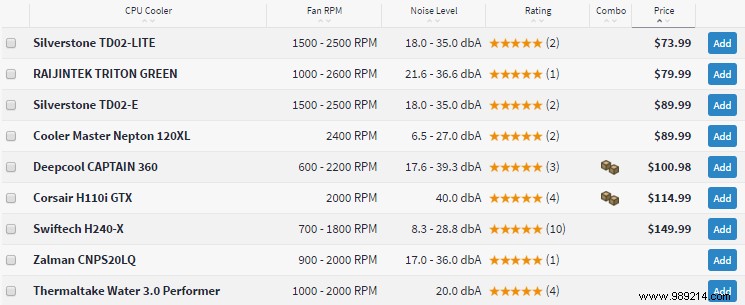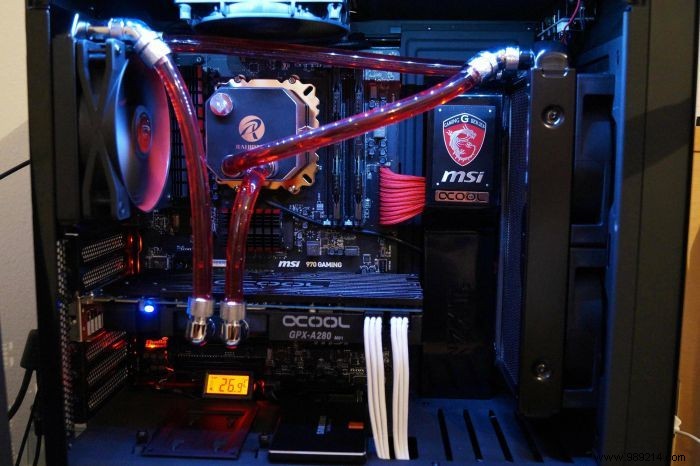Liquid cooling, also known as water cooling, is a CPU cooling technique that uses liquid. Now, this may be called water cooling, but that doesn't mean you can just use tap water, as tap water still contains corrosive elements that could damage the tube over time. What you want in a liquid cooling system is purified, deionized water, or other specialized liquids. Now, liquid cooling is significantly more expensive than an air cooling solution. The main reason behind this is the addition of specialized tubes and a heatsink. While you will certainly get better cooling performance with a liquid cooling system than ever with an air cooled system, liquid cooling is much more expensive and can be more difficult to set up and maintain over time.
>That being said, let's talk about the pros and cons of this one.
Liquid cooling is mainly known in hardware enthusiast circles for its excellent cooling performance which allows people to get the most out of their hardware, especially CPU and GPU overclocks. Let's take a moment to talk about it.


Finally, let's talk about who it's for. Liquid cooling is definitely not for most users. Its cost is prohibitive and it can be very difficult to work with. That being said, tech enthusiasts who want to get the most out of their hardware (PC gamers, video editors, etc.) will see some very real benefits from liquid cooling, and while it's not for everyone, that's really cool.
Are you interested in liquid cooling? Do you have it or do you know someone who has it? Let us know in the comments!
Image credit:Bjorn3D